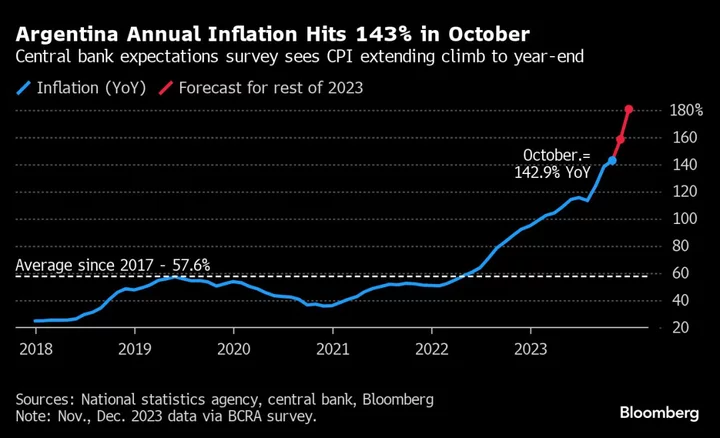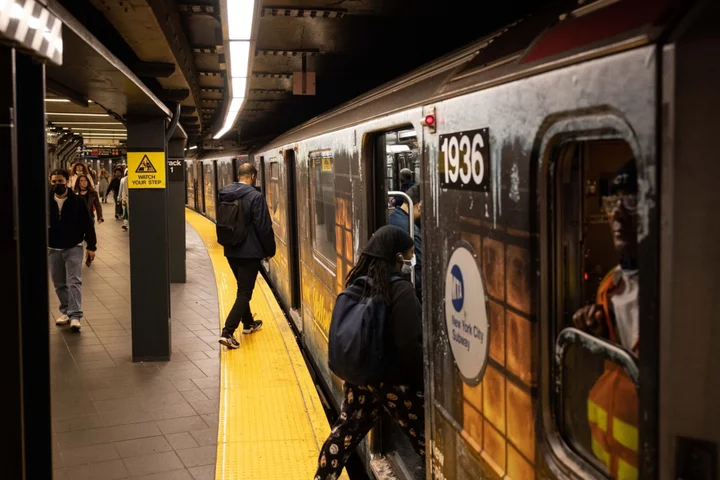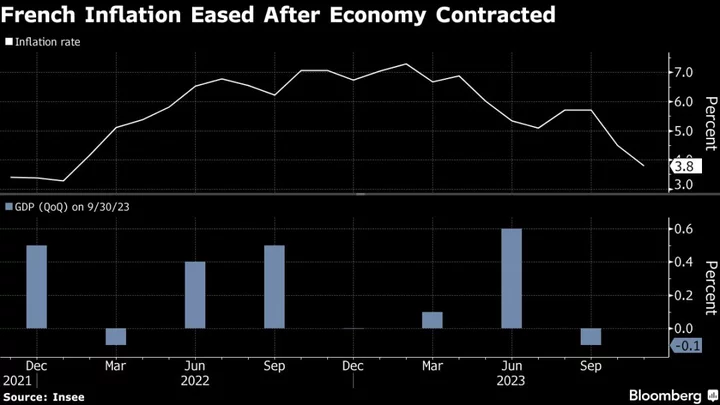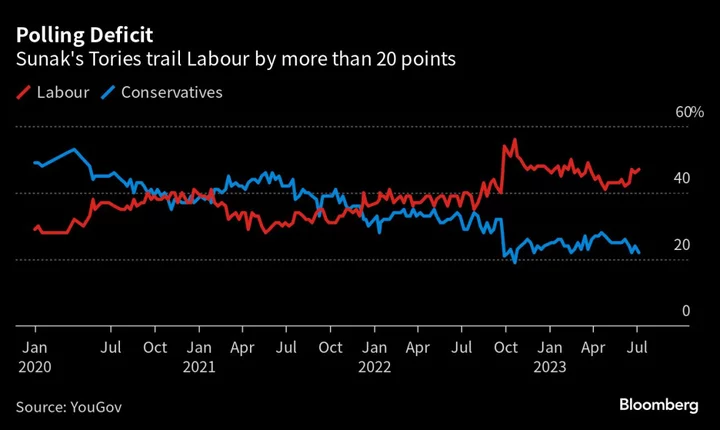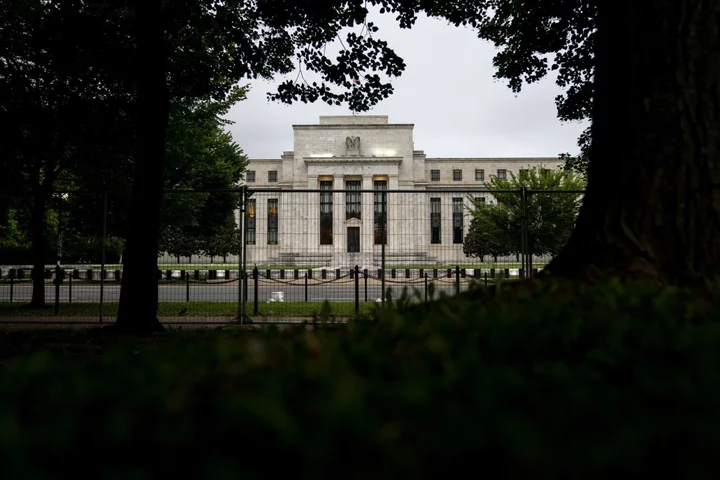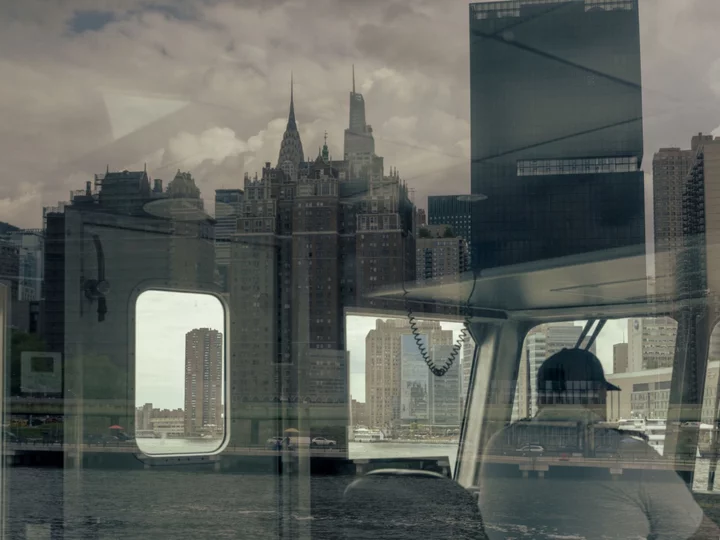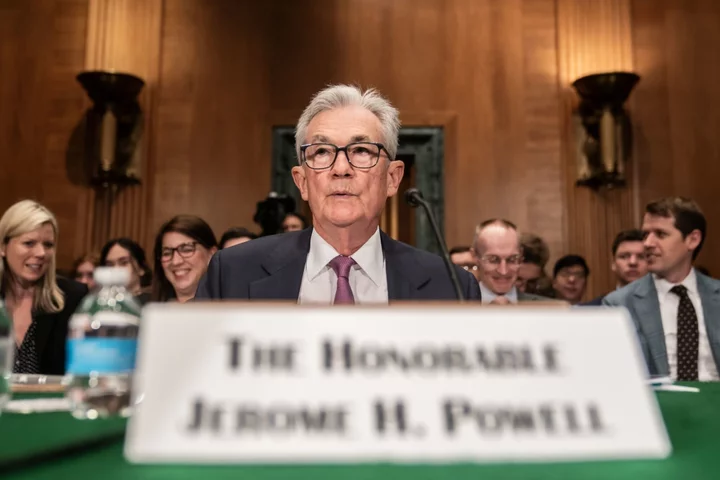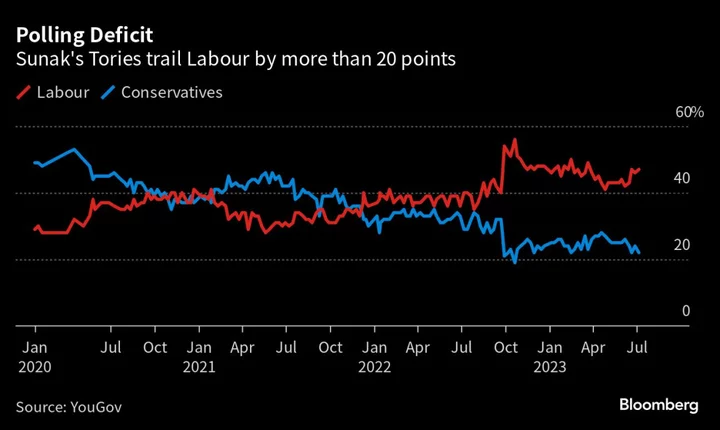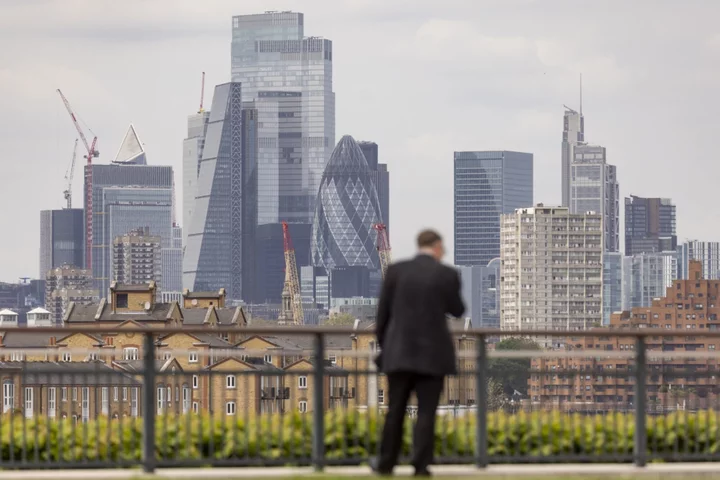Inflation in Argentina accelerated last month to its highest annual level since the country was exiting hyperinflation more than three decades ago, highlighting the dire state of the economy ahead of the presidential election later this week.
Consumer prices rose 8.3% in October on a monthly basis, a notch below September’s figure and less than the 9.45% median forecast of economists surveyed by Bloomberg. From a year ago, annual inflation accelerated to 142.7%, according to official government data published Monday, also slightly below projections.
Communication, clothing and home goods led price increases in October.
Argentines will choose their next president on Nov. 19 in a runoff vote between Economy Minister Sergio Massa and libertarian outsider Javier Milei, who is proposing closing the central bank and dollarizing the economy as a drastic solution to thwarting triple-digit price increases.
Read More: Massa’s Attacks Put Milei on Defensive in Argentina Debate
Regardless of who wins the consequential vote, inflation will be the biggest immediate challenge for Argentina’s next leader. Rickety currency controls have proven unsustainable, meaning a major currency devaluation is on the horizon for the next government taking office Dec. 10. At the same time, narrowing a chronic fiscal gap implies cutting subsidies that will make utility prices spike.
Economists see annual inflation near 200% over the next 12 months, according to the average forecast from the central bank’s last monthly survey.

